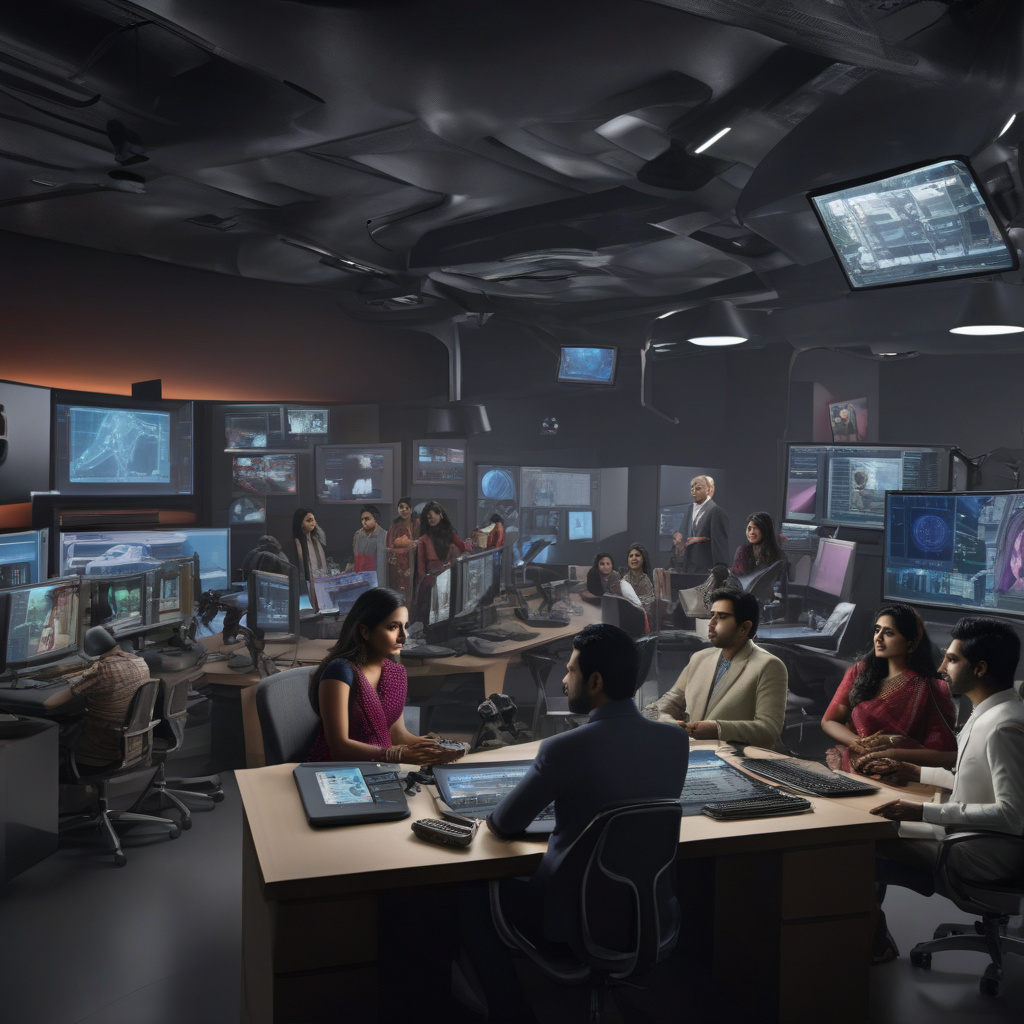AI-Powered Content Production: Revolutionizing India’s Media and Entertainment Sector
In today’s fast-paced digital world, the media and entertainment sector is constantly seeking innovative ways to enhance content production and post-production services. One technology that has been making waves in the industry is Artificial Intelligence (AI). With its talent and tech base, India is uniquely positioned to dominate AI-powered content production and post-production services.
AI has the potential to revolutionize the way content is created, distributed, and consumed in the media and entertainment industry. By leveraging AI algorithms, companies can analyze vast amounts of data to gain valuable insights into consumer preferences and trends. This, in turn, allows content creators to tailor their offerings to meet the specific needs and interests of their target audience.
One of the key areas where AI is making a significant impact is in content production. AI-powered tools can streamline the production process by automating tasks such as scriptwriting, video editing, and even music composition. This not only saves time and resources but also allows creators to focus on the more creative aspects of their work.
Moreover, AI can also help in enhancing the post-production process by improving tasks such as color correction, sound editing, and special effects. By automating these processes, AI can help content creators deliver high-quality content in a more efficient and cost-effective manner.
India, with its vast talent pool and thriving tech industry, is in a prime position to capitalize on the opportunities presented by AI in the media and entertainment sector. Indian companies have already started incorporating AI into their workflows to improve efficiency and enhance the quality of their content.
For example, Prime Focus Technologies, a Mumbai-based media services company, has developed CLEAR™ Media ERP, a cloud-based AI platform that helps media companies manage their content more effectively. By leveraging AI and machine learning algorithms, the platform enables content creators to automate tasks such as content localization, quality control, and distribution.
Another Indian company, Amagi, is using AI to revolutionize broadcast TV. Their cloud-based platform, Amagi CLOUDPORT, uses AI and machine learning to automate tasks such as content scheduling, ad optimization, and playout. This not only helps broadcasters reduce operational costs but also enables them to deliver targeted content to their audiences more effectively.
In conclusion, AI-powered content production and post-production services have the potential to transform India’s media and entertainment sector. By leveraging AI technologies, Indian companies can streamline their workflows, improve efficiency, and deliver high-quality content to their audiences. As the industry continues to evolve, AI will undoubtedly play a crucial role in shaping the future of media and entertainment in India.
AI, India, media, entertainment, technology
